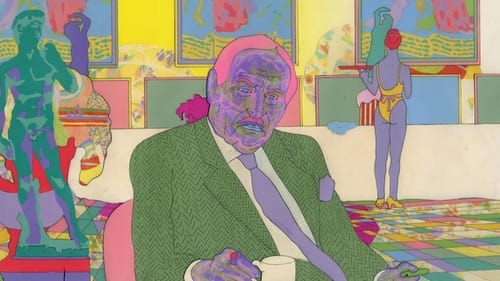Jazz Dance (1954)
Gênero : Documentário, Música
Runtime : 22M
Director : Roger Tilton
Sinopse
Few films wield the awesome spiritual power of Jazz Dance, on which Leacock was one of two cameramen charting the slow, smoldering build of a Manhattan dance club from idle space to explosive, carnal bacchanal. Employing handheld cameras, limited light and sheer proximity, the film achieved an intimacy never before witnessed in a documentary.

Documentary short by Humphrey Jennings

A young boy gets caught stealing a sheep and is shaved of all his hair and branded with a mark on his forehead so that everyone will know that he is a thief and not to be trusted. Dumped in the desert, the thief covers his marking with a headscarf and goes to the nearest village where he is taken in by a trusting family in return for his work. However, has be actually changed or is he still the same thief at heart?

Well-known locations in New York City. Clergy and others in Chicago; Muskogee, OK; and Bristow, OK.

A confrontation of two worlds-- Two rooms, one of which is full of light and colors, the other a monotonous gray.

Impressionistic study of the fate of a stray dog, trying to avoid the results of human indifference and cruelty.

Christian holy sites in Jerusalem and Galilee, Israel.

Baptist convention, funeral home, and assorted locations in Denver, CO; Tulsa, OK; Muskogee, OK; and unidentified locations.

Residences, tombs, and other locations in Eufaula, OK, and unidentified locations.

“The Forgotten Faces (1961), a film reconstruction of the Hungarian revolution of 1956, won Watkins another amateur Oscar, and to this day, the film is praised in England as "one of the most memorable amateur films ever made".

Residences, churches, funeral march, school children in Muskogee, OK; Taft, OK; and Okmulgee, OK.

Rottenberg’s newest film, Cheese (2007), conflates farm-girl imagery with the fairy tale “Rapunzel” into a story loosely based on the Sutherland Sisters, renowned for their extremely long hair. Floating through a pastoral yet mazelike setting of raw wooden debris cobbled together into a benign shantytown, six longhaired women in flowing white nightgowns “milk” their locks and the goats they live with to generate cheese. Shots of animals crowded in pens and the sisters’ bunk bed– cluttered room visually compare the women to their ruminant allies. As nurturing caretakers, these women represent maternal aspects of Mother Nature. Here Rottenberg investigates feminine magic, the ability to “grow things out of the body” as she says, as the ultimate, wondrous physical mystery.

This 13-minute short subject, marketed as an educational film, records a slice of life in the Watts neighborhood of Los Angeles prior to the rebellions of 1965. Filmmakers Trevor Greenwood, Robert Dickson and Alan Gorg were UCLA film students when they crafted a documentary from the perspective of the unassuming-yet-articulate teenager Felicia Bragg, a high-school student of African-American and Hispanic descent. Felicia’s first-person narrative reflects her hopes and frustrations as she annotates footage of her family, school and neighborhood, creating a time capsule that’s both historically and culturally significant. Its provenance as an educational film continues today as university courses use "Felicia" to teach documentary filmmaking techniques and cite it as an example of how non-traditional sources, as well as mainstream television news, reflect and influence public opinion.

Documentary about a miner's strike in Borinage.

Short documentary film in the newsreel series 'The March of Time'.

The film is a documentary portraying a struggle as man tries to subdue nature. To prevent flooding and for purposes of land reclamation, the people of the Netherlands struggle and succeed in building a breaker, thereby eliminating the wild inland body of water once known as the Zuider Zee (now called Ijsselmeer).

1950 - a young couple find out whether they are "ready for marriage".

In 1963 the first known surviving set of American quintuplets were born to Mary Ann and Andrew Fischer, this film looks at some of the changes their arrival caused to their family.

Early Balkan footage.

At Stamford Road in Dalston Junction of east London, the camera follows pedestrians, cars and birds while a narrator, who appears to be the director behind the camera, seems to instruct the objects.

A continuous zoom traverses the space of a breakfast table, serving as a grand metaphor for indigestion.





